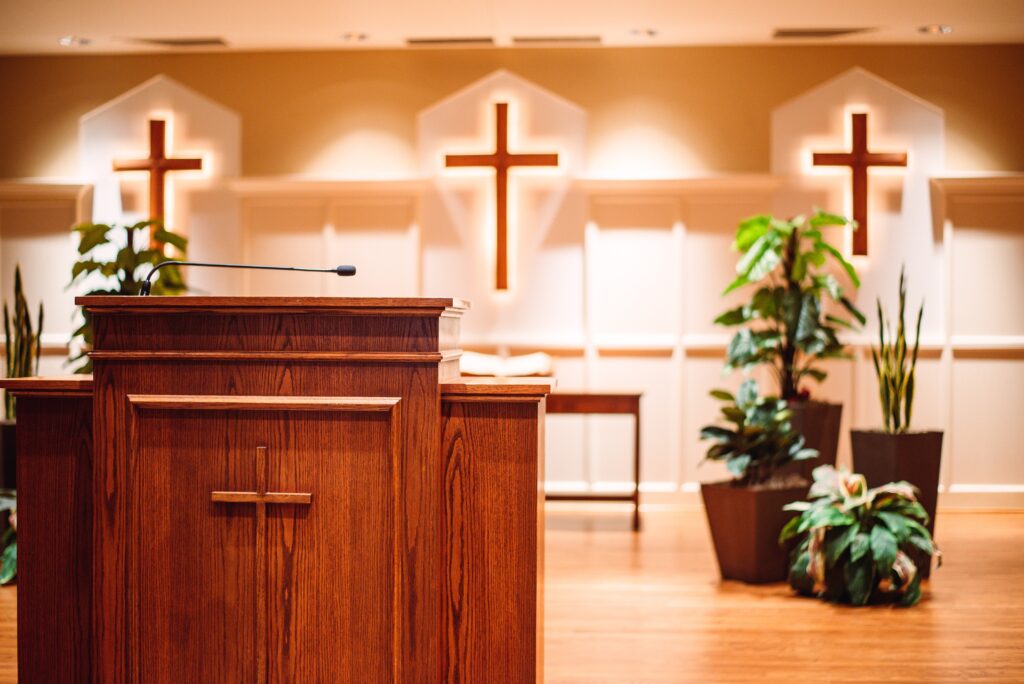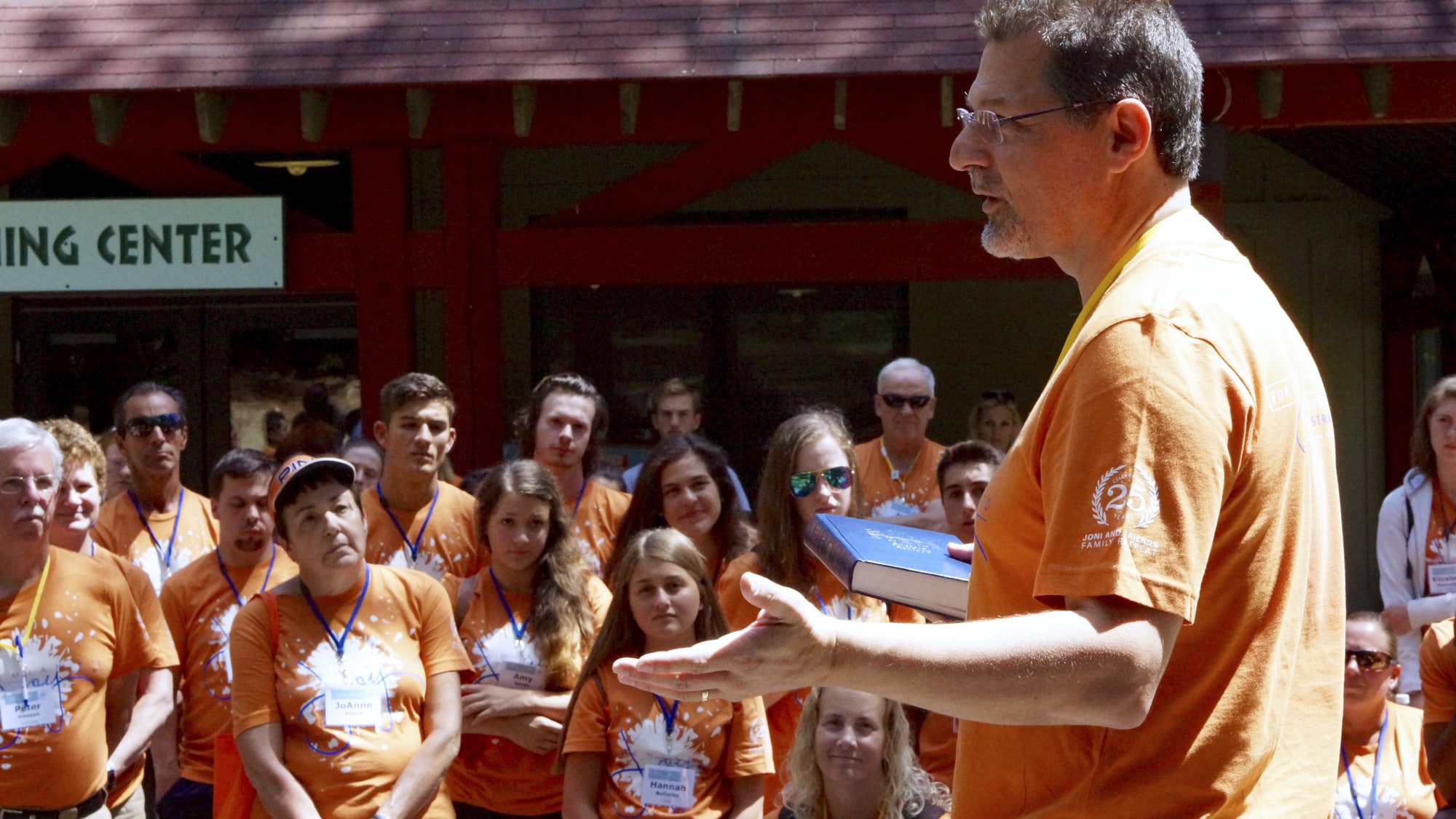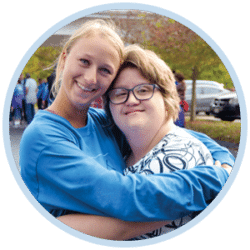3 Simple Ways Lead Pastors Can Support Special Needs Ministry

“Though one may be overpowered, two can defend themselves. A cord of three strands is not quickly broken.”
Ecclesiastes 4:12
There is a big difference between a church permitting disability ministry and a church supporting disability ministry. One of the biggest misconceptions is that if a pastor isn’t well-versed in “disability” or “special needs,” then the best thing they can do is step back and let “the experts” handle it.
But nothing could be further from the truth.
How does a pastor with no background in disability support special needs ministry at their church, instead of just allowing it to happen?
1. Ask meaningful questions
Pastor, even if you are not an expert on disability, your involvement matters. Disability ministry leaders (for all their expertise) need to be mentored in ministry. These leaders often find themselves as teachers, counselors, volunteer coordinators, program directors, and advocates all at once. No one is omni-gifted; asking the right questions will allow you to see the ways in which your disability or special needs leaders might benefit from support.
A leader who is gifted at teaching those with intellectual disabilities, for example, is not necessarily a good administrator or volunteer recruiter. A cord of three strands is not easily broken, but a leader in isolation is bound to eventually fail.
Don’t assume that no news is good news; too often disability ministries crash and burn because there was no one around to notice the blinking lights on the dashboard until after the crash has already happened. As a church consultant with Joni and Friends, nearly all the new calls I receive are from disability ministries in crisis. Most of the time, the crisis has very little to do with disability. The more frequent scenario is one in which a breakdown in communication between disability leaders and other church staff has led to organizational confusion, personal hurts, and emotional fatigue.
By asking questions, you will have the insight to identify barriers to disability ministry that have nothing to do with disability.

2. Talk about disability from the pulpit
Disability is not just an issue for a specific “disability ministry.” It is a human issue, and therefore, an issue for the whole church. The reason Joni and Friends often uses the language “impacted by disability” is to emphasize the fact that even those who are not themselves disabled are still impacted through relationship.
There is one body of Christ, “one Lord, one faith, one baptism; one God and father of all…” as Paul describes in Ephesians 4:5-6.
Consequently, disability is not an “issue” that only pertains to a select few.
Without a clear theology of God’s sovereignty, suffering, and disability, your congregation will arrive at conclusions that are not necessarily grounded in Scripture. Luke 9 provides such an example, as Jesus’ disciples ask a question regarding a man with a disability. “Rabbi, who sinned, this man or his parents, that he was born blind?” Jesus replies, “Neither this man nor his parents sinned, but this happened so that the works of God might be displayed in him.” In this case, the truth wasn’t even one of the options the disciples considered. Left to their own debate, neither side would have gotten to the truth, but only become more entrenched in a destructive, false belief.
Conversely, a congregation that holds a biblical view of disability is a congregation prepared to step into relationship with people with disabilities. We need to view disability as a “normal part of an abnormal world,” as Stephanie Hubach shares in her book Same Lake, Different Boat. This perspective is a great support to couples who discover they are expecting a child with a disability, and to those who become disabled through accident, illness, or old age.
Disability can impact anyone. A car accident that results in a traumatic brain injury, a bacterial infection that causes blindness, a steep dive into shallow water that severs the spinal cord… in truth, none of us are more than a few seconds away from having a disability.
3. Multiply leaders
Resting the success of any ministry (especially special needs ministry) on a single person is a recipe for failure. When a 900 lb. polar bear lies on its belly, it can shimmy across the thinnest of ice sheets. An overconfident 150 lb. woman who tried to follow might step right through ice into the frigid water. The amount of weight an ice sheet can support is directly proportional to how widely it is distributed.
In the same way, the capacity your church has to support a special needs ministry is directly proportional to how many people share the responsibility. And as I alluded to earlier, the responsibilities of disability ministry don’t always have to do with disability! For example, a gifted administrator that can help coordinate schedules, communicate with volunteers, and keep files up to date doesn’t necessarily need to know anything about disability.
You will find a helpful video on structuring a healthy disability ministry here.
When disability ministry is supported by senior leadership, the whole church is affected. When churches genuinely welcome, include, and integrate people of all abilities, the whole community benefits. The gifts of people with disabilities are discovered, celebrated, and used for the good of the church.
“…God has put the body together, giving greater honor to the parts that lacked it, so that there should be no division in the body, but that its parts should have equal concern for each other. If one part suffers, every part suffers with it; if one part is honored, every part rejoices with it”
1 Corinthians 12:24-26
The benefits of supporting disability ministry in your church extend beyond the disability community. To talk to someone near you, check this map and contact your nearest Joni and Friends Area Ministry! A real person will talk with you and help your church grow in its ability to welcome and embrace people of all abilities.
Written By—Ryan Faulk
Ryan Faulk works for Joni and Friends to equip churches throughout the US to evangelize and disciple people with disabilities. He is passionate about seeing churches reflect the heart of Christ for all people.

Do You Have Questions?
Contact us at [email protected] or call (818) 707-5664. We’re here for you. Your ministry’s success is our highest priority!





